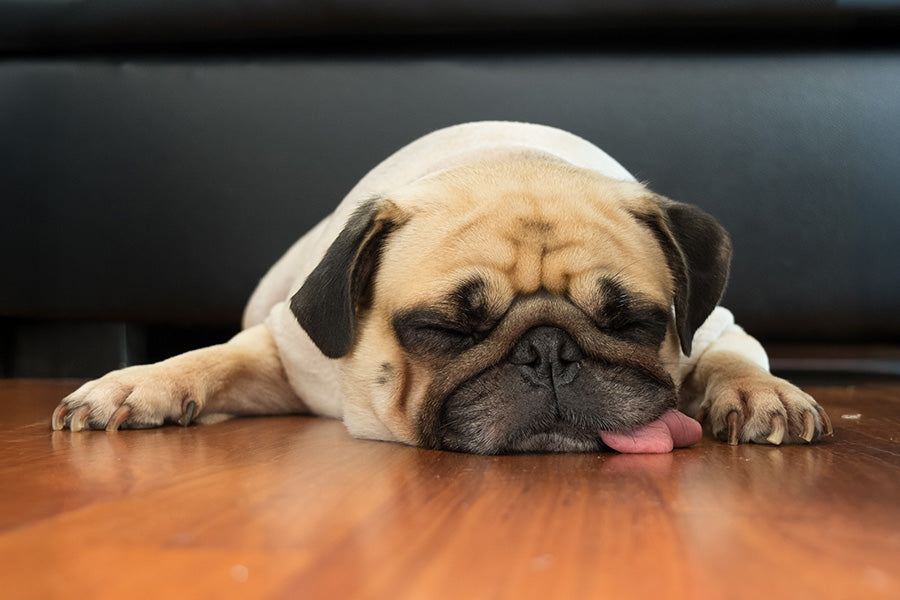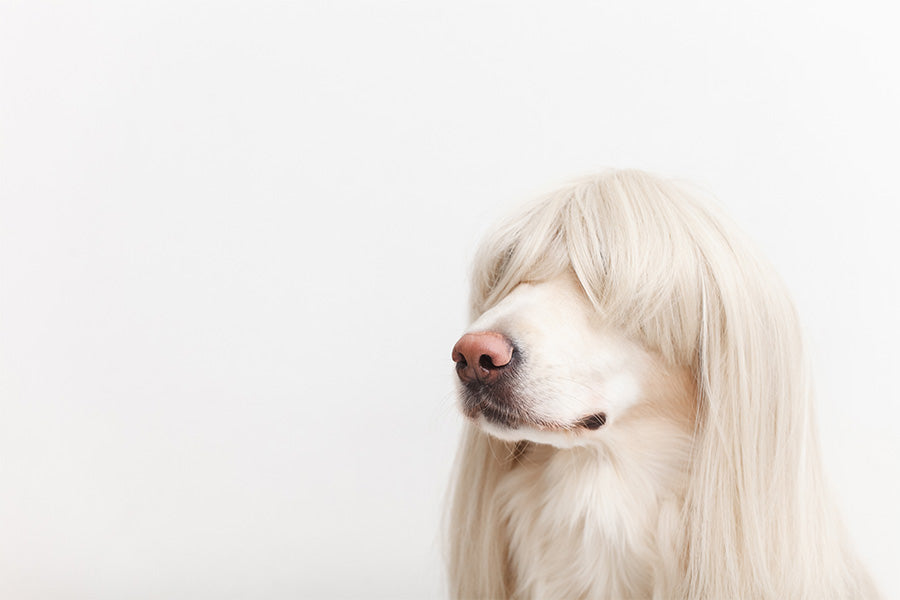Understanding and Preventing Dog Odour Issues

Understanding and Preventing Dog Odour Issues
In this article, we'll delve into why dog odours occur and how you can prevent them with effective solutions. We'll take a comprehensive look at the various factors that contribute to doggy smells and how these can be managed proactively. We'll also explore some innovative, ethically produced products that can make a significant difference. These solutions not only help in maintaining a pleasant environment but also contribute to the well-being of your pet.
Dogs naturally have a certain scent, which comes from their skin, coat, and even their paws. This is due to the oils their skin produces and the bacteria that live on their skin. The natural scent of a dog is unique and often comforting to pet owners; however, it can become overwhelming if not managed properly. While a small amount of odour is normal, if your dog smells particularly strong, it could be due to several factors.
Recognizing these factors is the first step in effectively managing and reducing unwanted odours.
-
Poor Hygiene: If your dog hasn't been bathed in a while, dirt and oils can build up, causing a strong smell. Regular baths using appropriate dog shampoos can help maintain a clean coat. Furthermore, inadequate grooming practices can lead to matted fur, which traps dirt and odours. Consistent grooming routines can prevent these issues and keep your dog smelling fresh.
-
Skin Infections: Bacterial or fungal infections can lead to odours. Check for redness, irritation, or unusual spots on your dog's skin. These infections often require veterinary intervention to resolve. Ensuring your dog is free from parasites and regularly inspecting their skin can help catch infections early. Prompt treatment of these conditions not only reduces odours but also improves your dog's overall comfort and health.
-
Ear Infections: Dogs with floppy ears are more prone to ear infections, which can produce a bad smell. Keeping your dog's ears clean and dry can help prevent these infections. Regular ear checks can catch infections before they become severe, reducing the associated odours. If you notice an unusual smell or discharge, consult your vet for appropriate treatment.
-
Dental Problems: Bad breath in dogs can often be a sign of dental issues. Regular dental care is essential. Brushing your dog's teeth and providing dental chews can help maintain oral health. Neglecting dental care can lead to more serious health problems, so it's important to establish a routine early on. This not only reduces bad breath but also contributes to your dog's overall well-being.
-
Diet: What your dog eats can affect their overall smell. A poor diet can lead to skin issues and bad breath. Investing in high-quality dog food can improve your dog's coat health and reduce odour. Foods rich in essential fatty acids, vitamins, and minerals promote healthy skin and fur. Consulting your vet about your dog's diet can ensure they receive the necessary nutrients for optimal health.
Now that we know why dogs can smell, let's look at some effective solutions to keep that odour under control. Addressing the root causes of odour will not only improve your home's smell but also enhance your dog's quality of life. By integrating these solutions into your regular pet care routine, you can ensure a more pleasant environment for both you and your dog.

Grooming your dog regularly is one of the best ways to prevent odour. This includes brushing to remove loose fur and bathing to keep their coat clean. Use a dog-specific shampoo designed to neutralise odours and keep their skin healthy. Regular grooming sessions can also be a bonding experience between you and your pet.
In addition to maintaining a fresh smell, grooming allows for early detection of potential skin or health issues.
Since ear and dental issues can contribute significantly to odour, make sure to clean your dog's ears regularly and brush their teeth. You can also use dental chews that help reduce plaque and tartar build-up. These practices are crucial in preventing the development of infections or dental diseases. Establishing a routine for ear and dental care can drastically reduce unpleasant odours and improve your dog's overall health.
Feeding your dog a balanced, high-quality diet can improve their skin and coat health, reducing odour. Look for foods that are rich in omega-3 fatty acids, which are great for skin health. A well-balanced diet supports all aspects of your dog's health, including their immune system and energy levels.
Consulting with a vet can help tailor a diet plan that meets your dog's specific needs, ensuring optimal health and a reduction in odour issues.
There are many products available that are specifically designed to eliminate pet odours. From sprays to powders, these products can be incredibly effective. When choosing a dog odour eliminator, look for those made with natural ingredients to ensure they're safe for your pet. These products can be used in conjunction with regular cleaning routines to maintain a fresh-smelling environment. Consider testing a few different products to find the one that works best for your home and your dog's needs.
As someone passionate about pet care and product design, I'm always on the lookout for innovative solutions. Here are a few products that stand out:
Natural Odour Control Sprays:
1. These sprays use plant-based enzymes to break down odour-causing bacteria, providing a safe and effective solution. They offer an eco-friendly alternative to harsh chemical sprays and are gentle on your pet's skin. These sprays are easy to use and can be applied directly to your pet or their bedding.
Here's an article with some Tips and Tricks on How To Overcoming Pet Urine Odours.
2. Pet-Friendly Air Purifiers: These devices filter out pet dander and odours from the air, keeping your home fresh. They are designed to tackle common allergens and particles that contribute to poor air quality. Investing in a quality air purifier can improve your home's atmosphere and ensure a pleasant environment for both you and your pet.
3. Eco-Friendly Dog Washes: Made from sustainably sourced ingredients, these washes are gentle on your dog's skin and effective in reducing odour. They are formulated to maintain your dog's natural oils while removing dirt and bacteria.
Using these products supports environmentally conscious companies and provides a safe option for your pet's grooming needs.
In today's world, it's important to consider the environmental impact of the products we use. Many dog odour solutions are now available that are not only effective but also ethically produced. Choosing these products reflects a commitment to a sustainable future. Look for brands that prioritize sustainability and ethical sourcing in their production processes. Supporting such companies encourages more responsible production practices across the industry.
As a pet owner, choosing products that are ethically produced helps support companies that are committed to making a positive impact. This means less harm to the environment and better quality products for your pet.
By opting for sustainable solutions, you are contributing to a healthier planet and setting an example for others. Ethical choices in pet care can lead to broader positive changes in consumer behaviour and environmental responsibility.
Alongside using dog odour solutions, there are some simple things you can do to keep your home smelling fresh. These everyday practices can significantly reduce the accumulation of odours and maintain a welcoming environment. Implementing these tips can make a noticeable difference in the ambience of your home.
-
Regular Cleaning: Vacuum and wash pet bedding regularly to remove hair and odours. Consistent cleaning routines prevent the buildup of dirt and bacteria that contribute to unpleasant smells. Establishing a cleaning schedule can help manage these tasks efficiently.
-
Ventilation: Open windows to let fresh air in.
Proper ventilation can help disperse lingering odours and bring in fresh, clean air. This practice not only improves air quality but also enhances the overall atmosphere of your home.
-
Use Bicarbonate of Soda: Sprinkle it on carpets and let it sit for a while before vacuuming to neutralise odours. Bicarbonate of soda is a natural and effective odour absorber that can be used safely around pets. Incorporating this into your cleaning routine can help maintain a fresh-smelling home.
Understanding and preventing dog odour issues is all about good care and using the right products. With regular grooming, a quality diet, and innovative odour solutions, you can keep your home and your pup smelling great. By addressing the root causes of odours and implementing effective solutions, you create a healthier environment for your pet and yourself.
Remember, choosing ethically produced products not only benefits you and your pet but also supports a healthier planet.
Here's to a fresh-smelling home and a happy, healthy dog! Embracing sustainable practices in pet care can lead to positive changes both at home and in the wider community.
For more helpful insights and information, check out our related blog posts here:
The Benefits of Canadian Willowherb in Dog Grooming


